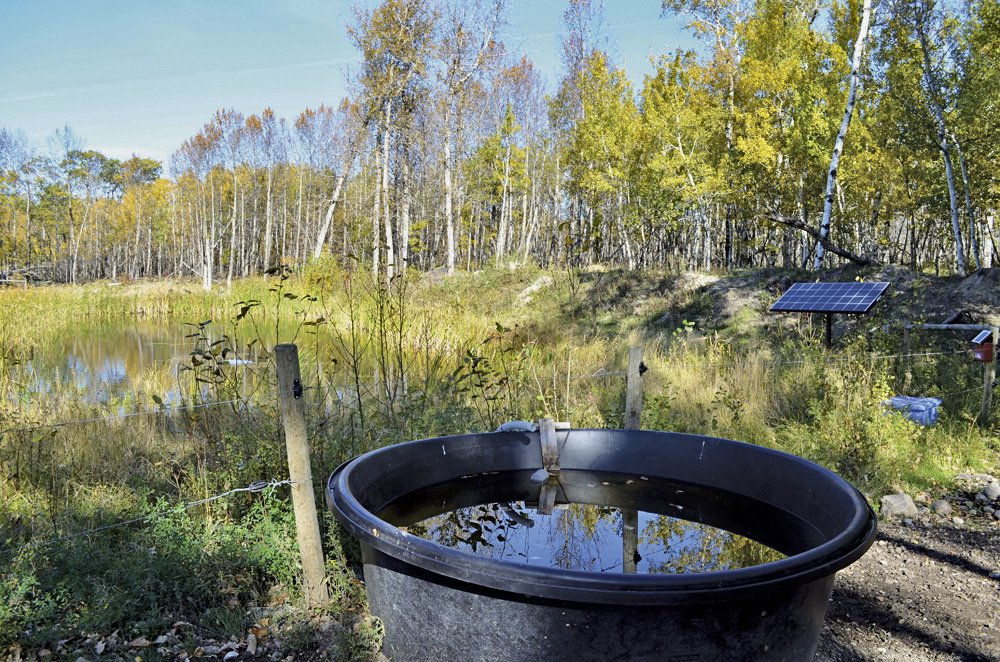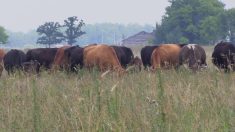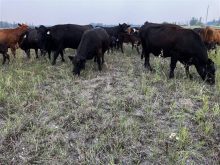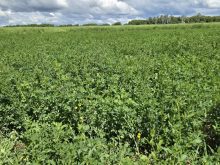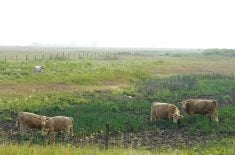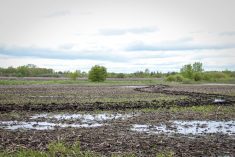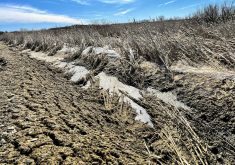Producers needing to revamp a water source or search out a new one will be able to access some government money for the project.
On June 8, the federal and provincial government announced that Manitoba producers will be able to get help for developing water sources. Eligible projects will be retroactive to the start of April, the province has said.
Why it matters: Lack of surface water has been a significant concern for livestock producers this year, despite rains in the second week of June.
Read Also
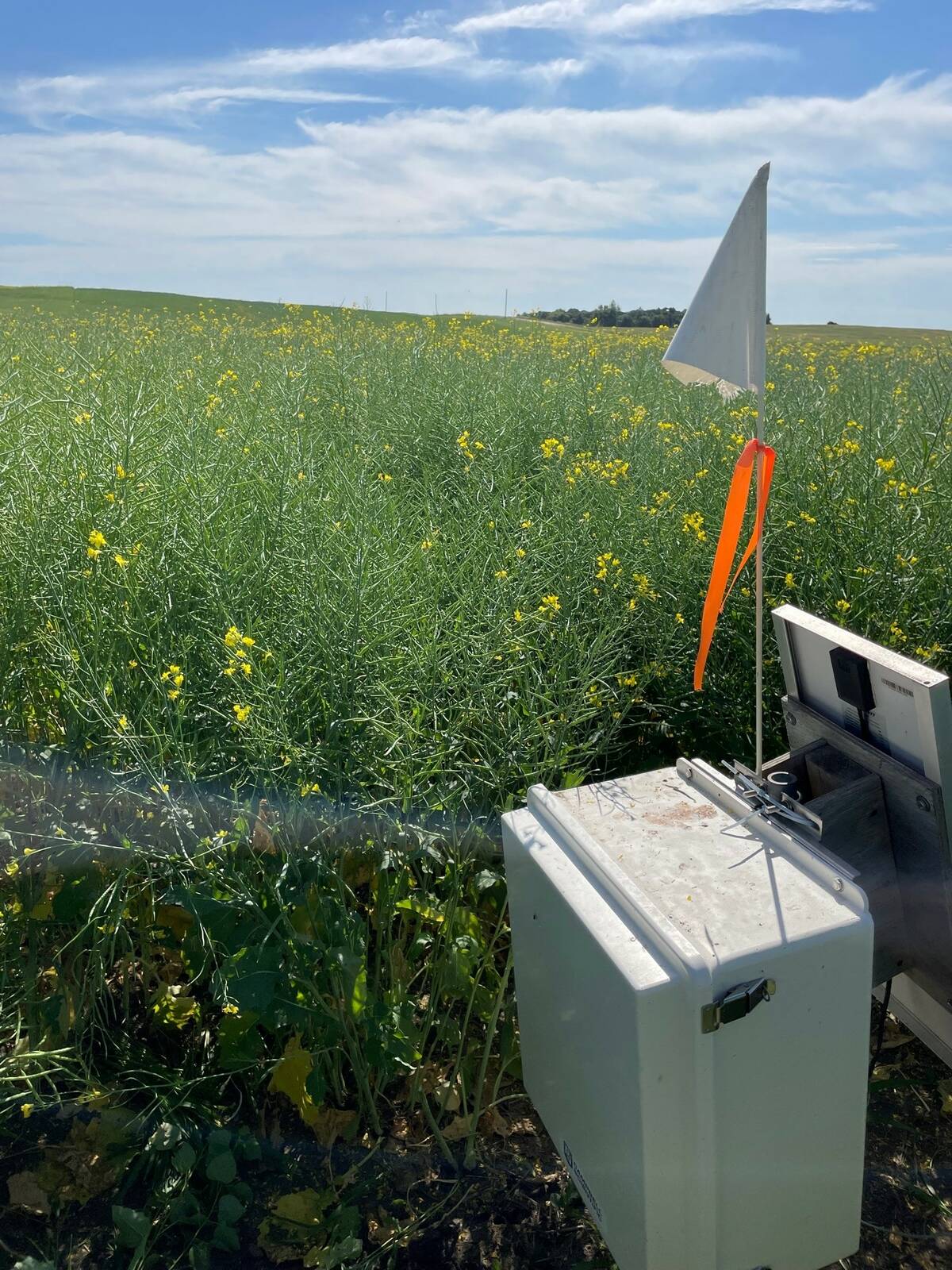
Where’s the water? RISMA knows
National soil moisture sensor network gives real-time data for Manitoba farmers fighting more frequent drought or flood.
The aid comes as part of Ag Action Manitoba’s beneficial management practices (BMP) funding, which cost shares projects between government and the farmer or business as an incentive for industry to adopt specific practices.
The funding, provided under the Managing Livestock Access to Riparian Areas BMP, comes with a funding cap of $10,000 and is evenly cost split between farmer and government.
The funding reactivates a program the province already had on the books, Agriculture and Resource Development Minister Blaine Pedersen said.
According to the province, projects like water pipelines, refurbishing or building dugouts, installing solar or wind-powered watering systems and fencing to restrict animal access to surface water are eligible for funding.
“There’s legitimate concerns about water sources,” Pedersen said.
Tyler Fulton, Manitoba Beef Producers president welcomed the news, although he noted that the program is limited to permanent water infrastructure and that there is concern around timing, since cattle are already on pasture and thirsty.
“You can dig a new dugout, but that doesn’t necessarily mean that anything’s going to fill it,” he also said. “On the flip side, there will be some producers who can access the funding from the federal and provincial partners for digging a new well. There’s a lot of new options there and we think that it’s something that producers should look at.”
The province will be reviewing applications, “on a regular basis to make sure that these applications are done on a continuous basis,” Pedersen said.
“Sometimes cleaning out a dugout is not good enough,” he also said. “They need to find a source to pump some water. We’ve put them in contact with the watershed districts. There are a couple of watershed districts that have pumps and pipes available.”
Fulton’s own farm near Birtle may have projects that could benefit from the program, he noted.
While recent rains have helped ease the immediate pressure on some surface water sources, he said, such funding may help his farm “address some of those spots that obviously were deficient for livestock watering capacity.”
Most farms likely do not have an Environmental Farm Plan, he said (a requirement for the program upon completion of the funded project), although he added that process is not onerous.
“This issue is not over,” Fulton said. “The drought is dynamic and it’s not consistent across the whole province, so it’s going to have to be something that we’re going to have to manage and work with the government for the weeks and months ahead.”
Applications will be accepted until Sept. 1.


